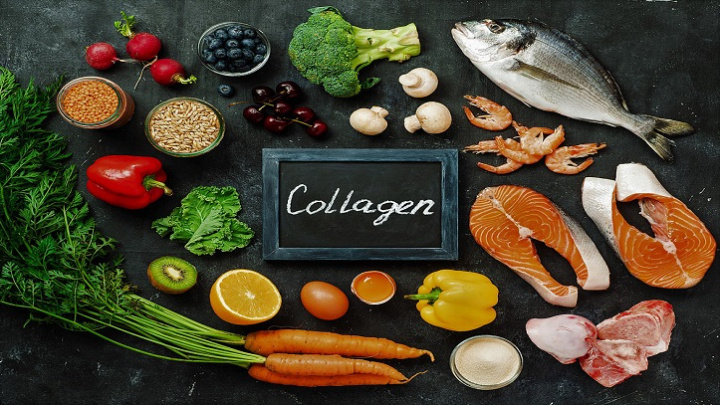Good Skin Health: Foods To Boost Collagen Production
Shining BD Desk || Shining BD
Collagen is a large protein that is used to make the connective tissue, which in turn keeps all the other tissues together. Collagen is present in bones, joints, blood, muscles, and cartilages.
It is the most important protein for a healthy-looking skin as it gives it elasticity and strength. Collagen makes up a third of the total body protein. As we grow older, our processes start to slow down and this affects the production of collagen too. Our "modern lifestyles "of high sugar foods, pollution, smoking, and excessive sun exposure all have a detrimental effect on collagen production. With a decrease in collagen, the skin starts to sag and wrinkle, joints become stiff and painful and bones become more brittle.
Structure and Function of Collagen for Skin Health:
Collagen is a complex protein which is made up of long fibers. The amino acids that make collagen include Glycine, Proline, Hydroxyproline and Arginine. Collagen forms a fibrous network of cells in the middle layer of the skin -Dermis. New cells grow on this network and as the collagen production declines the skin loses its structure and starts to sag. Collagen is naturally found mostly in animal proteins; however plant foods contain a number of important nutrients that help collagen production in our body.
NUTRIENTS OF CONCERN for COLLAGEN PRODUCTION:
AMINO ACIDS: There are 20 amino acids that make up all the proteins in our body. Of these 9 are termed essential as they are not produced in our body and need to be consumed through our food. Amino acids are important to produce collagen and are abundantly found in protein-rich foods like meats, poultry, legumes like peanuts and Tofu, cottage cheese, soy proteins, organ meats, Fish, and dairy.
VITAMIN C: The vitamin regulates the synthesis of Collagen. In addition, Vitamin C is a strong antioxidant and its role in maintaining and promoting skin health is well documented. Consuming foods rich in Vitamin C on a daily basis helps maintain not just a healthy skin but also a strong immune system. Vitamin C is abundant in citrus fruits, papaya, green leafy vegetables, tomato, berries, red and yellow peppers.
ZINC: The mineral needed in small amounts is a critical nutrient for collagen production. It boosts production, repairs cell and protects against damage. It also activates the proteins for collagen formation. Oysters, dairy, pumpkin seeds, cashew nuts are some of the best sources of zinc.
MANGANESE: It helps in collagen production by activating enzymes that boost the production of amino acid - Proline present in collagen. Needed in small amounts, Manganese is found in foods like, whole grains, nuts, legumes, brown rice, leafy vegetables and spices.
COPPER: It works by activating enzymes that are needed for collagen production; these enzymes also help connect collagen fibers with other fibers, creating a wire frame that supports tissues. Whole grains, beans, nuts, shellfish, organ meats, green leafy vegetables and dried prunes are all good sources of copper.
Shining BD
























